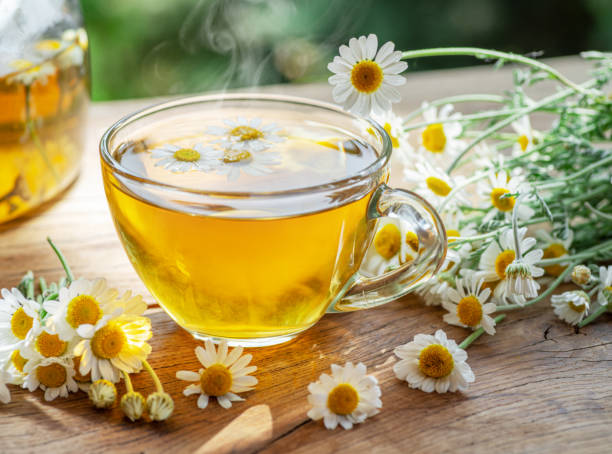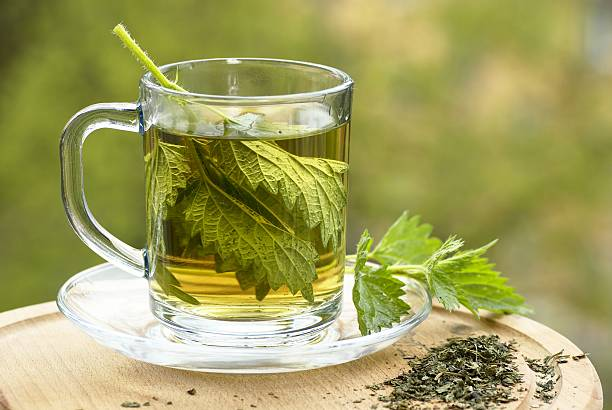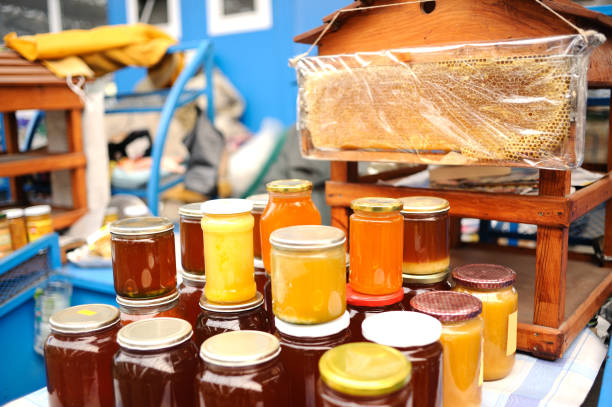Alternative Treatments
What Tea Is Good For Seasonal Allergies
Are seasonal allergies interfering with your well-being? If this is the case, it’s time to explore tea’s ability to provide relief. Tea has long been valued for its therapeutic and relaxing properties, making it an effective natural cure for a variety of diseases, including seasonal allergies. In this article, we will look at the finest teas for relieving the symptoms of seasonal allergies and promoting general wellness. Certain teas can bring much-needed relief if you’re suffering from sneezing, itchy eyes, or a scratchy throat. We’ll go over the benefits and qualities of each, from green tea and chamomile to nettle and peppermint tea, so you can make an informed decision. Learn about the world of tea and how these natural medicines can help you deal with the discomfort of seasonal allergies. Say goodbye to hay fever and hello to a cup of tea made specifically for you.
Understanding Seasonal Allergies and Their Symptoms
Seasonal allergies, commonly known as hay fever or allergic rhinitis, develop when your immune system overreacts to allergens in the environment that are present throughout various seasons. Pollen from trees, grasses, and weeds, as well as mold spores, are common triggers. When exposed to certain allergens, your immune system produces histamines, which cause the symptoms of seasonal allergies.
Seasonal allergies can cause a variety of symptoms, including sneezing, a runny or stuffy nose, itchy and watery eyes, and an itchy throat. These symptoms can be very annoying and have an influence on your daily life. Fortunately, tea can help provide relief and lessen the severity of these symptoms.
Tea contains a variety of anti-inflammatory and antihistamine chemicals, including polyphenols and antioxidants. These characteristics can help relieve the symptoms of seasonal allergies by lowering inflammation and inhibiting histamine release. You can get natural and relaxing comfort by integrating tea into your allergy treatment routine.

How Tea Can Help Alleviate Seasonal Allergy Symptoms
For ages, tea has been used as a natural cure for a variety of health concerns, including allergies. Tea has strong chemicals that can reduce inflammation, soothe irritated tissues, and enhance your immune system. By including tea into your daily routine, you can tap into the ancient beverage’s therapeutic characteristics and get relief from seasonal allergy symptoms.
It is critical to evaluate the individual benefits and features of each type of tea before selecting one for your allergies. Different teas provide distinct benefits based on their ingredients and brewing methods. Let’s look at the several types of tea that are known to help with seasonal allergies and their qualities.
Types of Tea That Are Beneficial for Seasonal Allergies
Herbal Teas for Seasonal Allergies
Due to their natural characteristics and absence of caffeine, herbal teas are an ideal alternative for relieving seasonal allergy symptoms. These teas, which are often brewed from a blend of herbs, flowers, and spices, provide a variety of health advantages. Let’s take a deeper look at a few popular herbal teas that can help.
Green Tea and Its Anti-Allergic Properties
Green tea is well-known for its many health advantages, including anti-allergy characteristics. This tea is abundant in antioxidants, such as catechins, which have anti-inflammatory properties. Green tea can help relieve symptoms like sneezing and congestion by lowering inflammation in your nasal passages and airways.
Green tea has also been demonstrated to suppress the release of histamines, which are responsible for allergic reactions. Also green tea catechins can inhibit histamine synthesis, lowering the intensity of allergy symptoms. A cup or two of green tea added to your daily routine can bring the allergy relief you seek.

Nettle Tea and Its Natural Antihistamine Effects
Nettle tea, prepared from the leaves of the stinging nettle plant, has antihistamine properties. This tea includes bioactive components that can suppress histamine release, lessening allergy symptoms. Nettle tea has anti-inflammatory effects that can help relieve nasal congestion and sneezing.
Steep dried nettle leaves in boiling water for 5-10 minutes to make nettle tea. For best treatment, drink this herbal tea up to three times each day. It is crucial to remember, however, that nettle tea may conflict with some drugs, so it is best to contact with a healthcare practitioner before incorporating it into your regimen.
Chamomile Tea and Its Soothing Properties for Allergy Relief
Chamomile tea is well-known for its calming effects, and it is frequently used to aid relaxation and sleep. While chamomile, on the other hand, can help those who suffer from seasonal allergies. This herbal tea contains anti-inflammatory and antispasmodic components that can help relieve symptoms such as nasal congestion and itchy eyes.
Chamomile tea’s relaxing qualities can also help those suffering from allergy-related anxiety and stress. Chamomile tea can help lessen the severity of allergic reactions and provide relief by inducing relaxation. Relax your mind and relieve your symptoms with a warm cup of chamomile tea before bed.
Rooibos Tea and Its Immune-Boosting Benefits
Rooibos tea, made from the leaves of the Rooibos plant in South Africa, is a caffeine-free herbal tea with immune-boosting properties. This tea contains antioxidants like aspalathin and quercetin, which can help maintain a healthy immune system and prevent inflammation.
Regularly consuming rooibos tea will help build your body’s defenses against allergens and lessen the intensity of allergic reactions. This herbal tea also has a naturally sweet and nutty flavor, making it a tasty and calming allergy treatment alternative.

Other Natural Remedies for Seasonal Allergies
Other natural therapies, in addition to tea, can help ease the symptoms of seasonal allergies. These remedies can be combined with tea to offer a more comprehensive approach to allergy relief. Consider the following options:
- Local Honey: Local honey can help desensitize your body to pollen, lessening the severity of your allergy symptoms.
- Quercetin Supplements: Supplements containing Quercetin: Quercetin is a natural flavonoid found in fruits and vegetables that has antihistamine characteristics. Taking quercetin supplements may aid in the reduction of allergy symptoms.
- Steam inhalation: Using a steam inhaler or inhaling steam from a basin of hot water might help clear nasal passages and reduce congestion.
- Saline Nasal Rinse: Use of a saline nasal rinse can help flush out irritants and reduce nasal congestion.
You can get relief from seasonal allergies and enhance your general well-being by including these natural therapies into your allergy relief routine, along with the recommended teas.
Conclusion
Seasonal allergies can be a nuisance, but with the power of tea, I can find relief and enjoy a more comfortable allergy season. Whether I prefer herbal teas like chamomile and nettle or opt for antioxidant-rich green tea, incorporating these teas into my daily routine can provide natural relief from sneezing, congestion, and other allergy symptoms.
I’ll remember to choose high-quality teas and brew them properly to ensure I’m getting the maximum benefits. I’ll experiment with different flavors and blends to find the ones that suit my taste buds and provide the most relief. By combining the healing properties of tea with other natural remedies, I can create a comprehensive allergy relief routine tailored to my needs.
So, the next time allergies strike, I’ll reach for a cup of tea and let its soothing properties work their magic. I’ll embrace the world of tea and discover the natural relief it can provide for seasonal allergies. Say goodbye to discomfort and hello to a more enjoyable allergy season with the power of tea. Cheers to my health and well-being!


